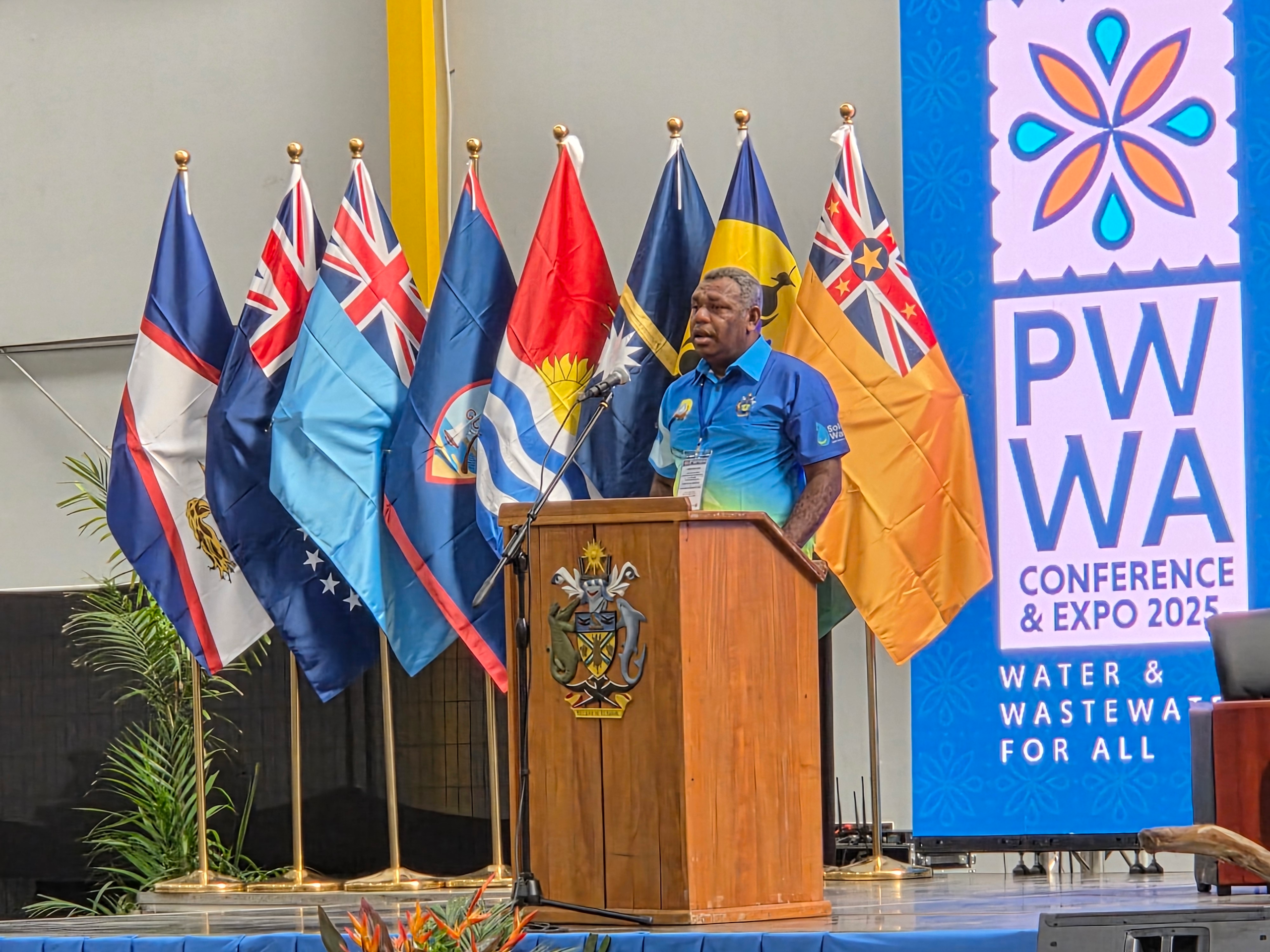
by Georgina Maka’a
Water is not just a resource – it is life itself. For our island nations, water defines survival, well-being, and development.
These were the words of the Permanent Secretary of the Ministry of Mines, Energy, and Rural Electrification (MMERE), Dr Chris Vehe, when speaking at the opening of the Water Summit currently underway in Honiara.
He stressed that this vital source of life is increasingly under threat from climate change—through rising seas, prolonged droughts, and stronger storms striking with greater intensity.
“This reality places water security at the very heart of our regional priorities. It is precisely why bringing us all together—leaders, experts, young professionals, women, youths, and even children—is so vital,” he said.
Dr Chris added that everyone carries a voice, a perspective, and a responsibility.
“By uniting science with lived experience, and policy with community needs, we create solutions that are not only resilient but also inclusive,” he said.
The Permanent Secretary described the Conference as more than just a meeting, but a platform to strengthen collective voices, share innovations, and chart strategic pathways to safeguard the future.
“In doing so, we are not only securing water; we are securing the health, stability, and prosperity of our Pacific people for generations to come,” he said.
Prime Minister Jeremiah Manele also highlighted that achieving safe and resilient water and wastewater services requires locally appropriate solutions that respect governance systems, culture, and traditional knowledge, including the vital role of women and girls.
“This challenge can only be resolved by dedicated Water Champions at all levels,” he said.
He further emphasized the need for strong national and regional investments to secure water and wastewater services for all.
Meanwhile, Lucia Sefoleau, Chief Executive Officer of the Pacific Water and Wastewater Association, told journalists at a recent media conference that the Pacific lags far behind other regions in terms of water access.
“In terms of access to water, we have about 50 to 55 percent access to clean water as a region,” she said.
She added that this situation is unacceptable.
“We are behind Africa and other regions of the world. For sanitation, access is probably around 35 percent, which means many of our people still rely on the beach and bush for toilets.”
Sefoleau emphasized the importance of understanding these statistics and recognizing the urgent need for action.
“We have to elevate water as a priority for our governments across the Pacific and ensure it is recognized as central to climate resilience,” she said.
